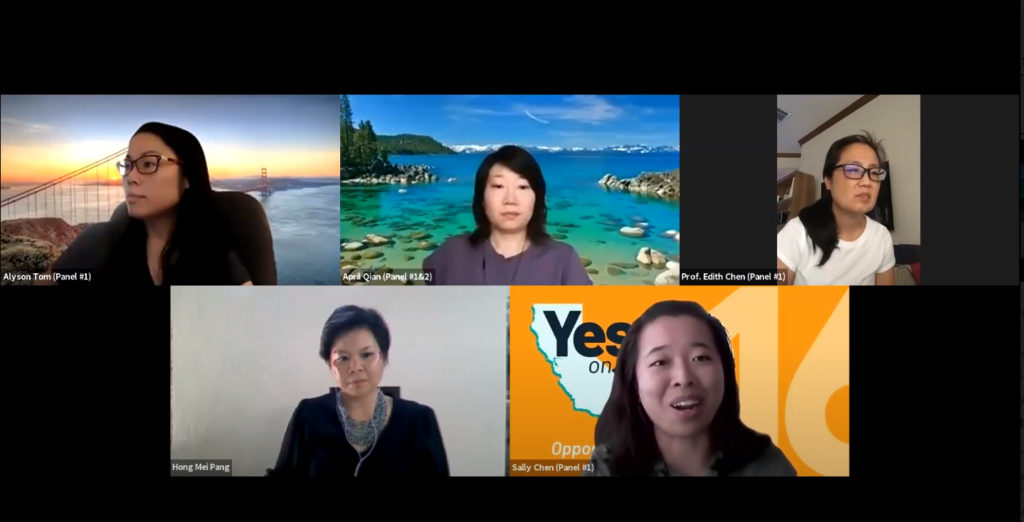
With Prop 16 on the November ballot in California, affirmative action has been on the minds of many Chinese Americans. On August 25, 2020, CAA, in partnership with the progressive group Chinese American, hosted a virtual town hall to discuss the impact of affirmative action on Chinese Americans. Nearly 100 participants heard from community leaders, higher education experts, and activists about the benefits equal opportunity programs make possible.
Hong Mei Pang, CAA’s director of advocacy, and Steven Chen of Chinese American spoke about affirmative action’s role in combating systemic economic inequalities for Asian Americans and other communities of color.
Alyson Tom, the associate director of college counseling at Castilleja School, said she knows from her experience as a high school counselor and former college admissions officer that Asian American students benefit from race-conscious admissions.
“Colleges do actively recruit Asian American students because they value a diversity of voices in the classroom,” she said. Tom explained that colleges consider many factors during admissions, including the college’s relationship with the high school, first generation or legacy status, major, students’ finances, interests, and special talents. She stressed that race/ethnicity is just one of many factors colleges consider.
Other speakers asked families to consider the experiences and opportunities that diverse learning environments would provide to students. Edith Chen, a professor at CSU Northridge, said her research on health disparities in AAPI populations is made possible through a grant for Asian American scholars. Sally Chen, CAA’s economic justice program manager, shared about attending Harvard through affirmative action policies. Prop 16 would permit funding for programs that benefit working-class Chinese communities, like the one she grew up in and currently serves through her work at CAA.
April Qian, a long-time staff member at a public university, talked about Asian Americans being part of the solution to the issue of inequitable educational access. For example, there is a lack of Asian American professors and university leaders, and the need for employment policies that consider diversity.
“We need to look at whether our children will be supported to be leaders in our community. Affirmative action also impacts private hiring practices. I’m looking forward to specific strategies coming forward. Every one of us should be a part of figuring which specific policies really help [Asian Americans after Prop 16 passes],” Qian said.
The second half of the event was a panel in Mandarin with community leaders who have been organizing support for Prop 16 in WeChat, followed by a Q&A. Panelists addressed attitudes within the immigrant Chinese community, and shared their support for Prop 16. They emphasized that affirmative action is key to advancing a pluralistic democracy rooted in values of equity and inclusion. Cantonese interpretation was provided throughout the event, ensuring linguistic accessibility.



